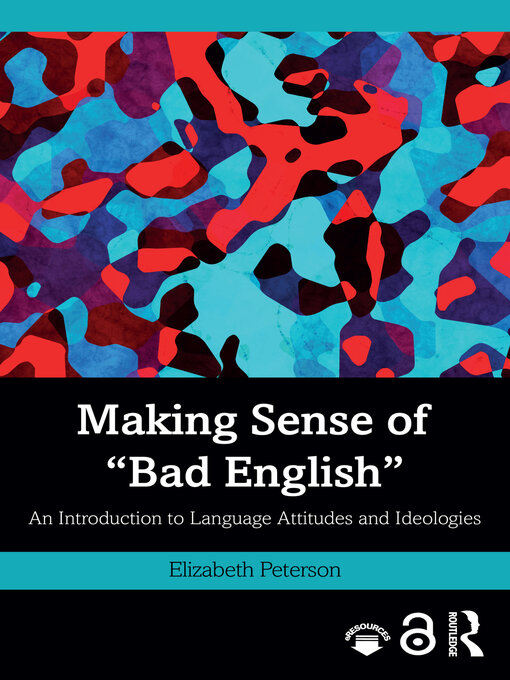Why is it that some ways of using English are considered "good" and others are considered "bad"? Why are certain forms of language termed elegant, eloquent or refined, whereas others are deemed uneducated, coarse, or inappropriate? Making Sense of "Bad English" is an accessible introduction to attitudes and ideologies towards the use of English in different settings around the world. Outlining how perceptions about what constitutes "good" and "bad" English have been shaped, this book shows how these principles are based on social factors rather than linguistic issues and highlights some of the real-life consequences of these perceptions.
Features include:
Making Sense of "Bad English" provides an engaging and thought-provoking overview of this topic and is essential reading for any student studying sociolinguistics within a global setting.

